Recently and more frequently I have been introduced to bizarre and baffling diseases that animals have that are coming into the store. People have been telling me that their carnivors cannot eat meat..that they are unable to take stairs or run or wear a collar for fear of choking.
With a perplexed mindset I started looking up the major factors to why there is such a problem with animals bred for the "doggy set".
I admit that I had and have my own suspicions with so many years of dog and cat connections but I was enlightened beyond what I expected.
To sum it up in a nutshell.....and without fear of making an overly broad statement I have to come to the conclusion that we have, in the past 100 years, overbred certain "pedigreed" dogs to the point that they have unusual and debilitating physical problems.
Recently it was passed in the UK that breeding standards were to be changed after pressure from the BBC which broadcasts the major dog showing there.
The BBC pulled out of the dog show after it was embroiled in the row over the welfare of pedigree dogs, leaving the event untelevised for the first time in 40 years.
Pedigree Dogs Exposed, a BBC1 documentary last year, claimed some of the Kennel Club's standards were effectively encouraging dog owners to breed ill-health into their pets.
Related Articles
Kennel Club dog breeding shake-up 'not radical enough', RSPCA says
Crufts presenter Peter Purves 'saddened' by BBC's decision to axe coverage
Dog winched to safety after cliff fall
RSPCA fights dog fashion
Inbred pedigree cats suffering from life-threatening diseases and deformities
BBC tightens rules ahead of new series of University Challenge
It revealed that decades of inbreeding has caused epilepsy and cancer among some entrants at the event, described by a leading vet as showcasing "a parade of mutants".
The corporation subsequently suspended coverage of the Crufts dog show in 2009 after The Kennel Club refused to comply with the BBC's demands that 14 'at risk' breeds be excluded from the competition.
Crufts attracted 150,000 visitors last year and an average of three million television viewers each day.
The Kennel Club has now said it will change the standards – the ideal which show dogs must try and match - to ensure that all dogs are "fit for their original function". It will also ban the breeding of close relatives.
There are a number of breed specific amendments, for 78 breeds.
They have been revised so that they will not include anything that could in any way be interpreted as encouraging features that might prevent a dog from breathing, walking and seeing freely.
Under the "strict new rules", the standard for Shar Pei dogs will no longer include exaggerated folds of loose skin across its neck, skull and legs and breeders must stop encouraging "excessive weight" in Labradors.
Owners of Clumber Spaniels will be banned from "exaggerating substance" – the size of a dog's body and muscle – so that they would be fit for their original purpose of working in the field.
Marc Abraham, Kennel Club veterinary advisor, said: "The changes that have been announced today will leave breeders and judges in no doubt about their responsibilities to safeguard the health and welfare of dogs, first and foremost."
The Kennel Club denied suggestions that the new guidelines were bought in as a result of the BBC decision to suspend coverage of Crufts.
The Kennel Club is tied into a contract with the BBC until 2010, meaning it cannot offer the rights to a rival broadcaster. The BBC pays an annual six-figure sum to the Kennel Club for the television rights and could face a legal battle if it decides to suspend payment for the coming year.
Concerns raised by the documentary have already led to the withdrawal of Pedigree, the main sponsor, and the RSPCA. The animal charity welcomed the BBC's decision, describing current breed standards as "morally unjustifiable".
Mark Evans, the RSPCA's Chief veterinary adviser, said watching Crufts was "like seeing a parade of mutants".
He said: "Many characteristics which are considered desirable in pedigree dogs – as defined by the breed standards which the Kennel Club promotes – are actually shocking deformities which affect the welfare and quality of life for hundreds of thousands of dogs.
"There are now recognised to be more than 450 inherited diseases suffered by pedigree dogs and we believe the intentional breeding of deformed dogs and close inbreeding is morally unjustifiable and must stop."
Kennel Club spokesman Caroline Kisko said: "We said in the autumn that a new review standards would be bought out, long before the BBC pulled out of Crufts. As far as we're concerned, we're looking for different broadcasters. We're currently under BBC contract, whether they choose to broadcast for the next year or not."
The revised standards will be used to judge dogs in Crufts 2009.
A BBC spokesman said Crufts would not be shown in March. He added: "We remain open to the idea that Crufts will return to the BBC and this is an interesting development."
Here in Canada we are not too far behind the ill breeding of pets but for a slightly different reason. Traditionally, dogs were bred to do certain tasks and bred into those dogs were physical traits that warranted doing the work asked of it. Here in North America primarily we are seeing physical traits of dogs that are only useful for simple esthetics. Super small dogs called teacup this and teacup that and superfat, long eared breeds that would certainly not be able to attack any task asked of them. The excellent nose on certain hounds are only as good as the short time it takes for the overly fat and loose skinned dog to become too tired to continue. Overheating on dogs unable to breathe through the folds of their nasal cavities simply because someone thought the face should be flatter is beyond comprehension!
Because dogs in the UK have often been bred in pedigreed kennels from Mother to Son and sibling to sibling bad traits are often exaggerated.
Here it seems to be an uneducated eye (read backyard breeder) that "tries" breeding a separate lineage into a family and finds unwanted results and therefor not truly "pedigreed" dogs being sold for serious dollars.
Interestingly enough.......the mixed breeds (NOT the designer dogs..ie:puggle,everything-doodle, etc) are living healthier lives because the right genes are taking up the stand and creating less health related problems.....yay!
Now.......I loves me all kinda dogs....whether mixed breeds or so called pure breeds...I just want to see them live for a loooong time without pain, health problems or chronic digestive issues.
Be careful what you ask for!
WOOF!!!
Subscribe to:
Post Comments (Atom)

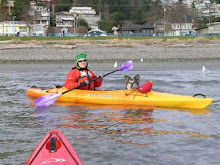







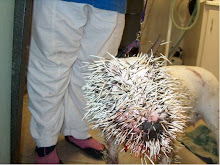
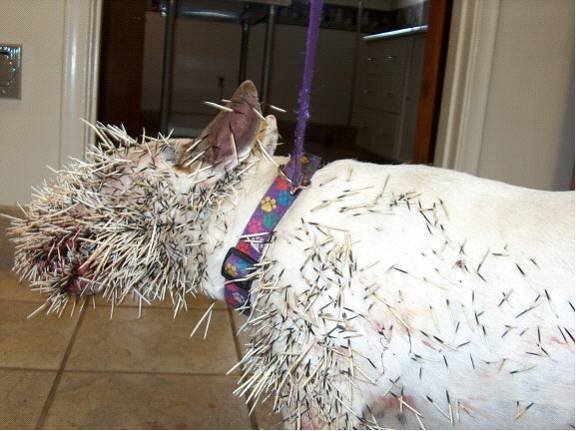

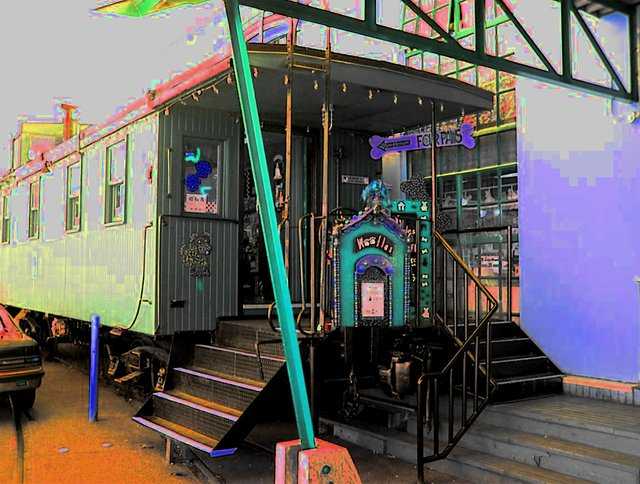


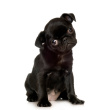

















No comments:
Post a Comment